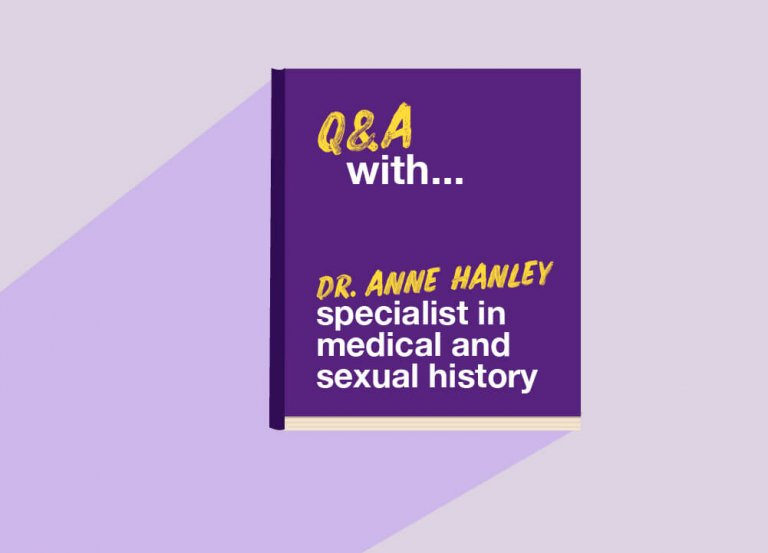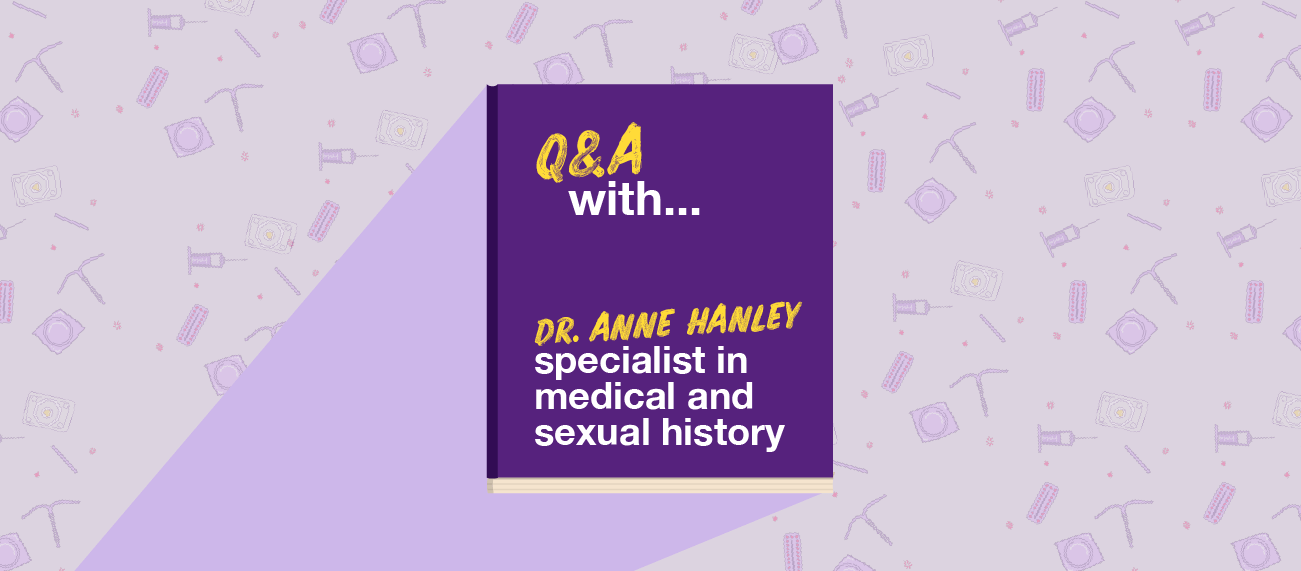You’ve most likely heard of it, but do you know how the morning after pill actually works? In our 2019 study, we found that 44%* don’t know the emergency contraceptive pill works by delaying ovulation.¹ This may explain why 41% of people believe the morning after pill causes an abortion and 40% think it can make you infertile.¹ These are all untrue, but all too often they’re taken as fact.
The morning after pill is riddled with misconceptions, but where do these myths come from? We spoke to Dr Anne Hanley, a historian of sexual and medical history, the author of Medicine, Knowledge and Venereal Diseases and university lecturer.
She really knows her stuff, so we talked about how to separate the benefits of birth control with its eugenicist founders, sexism through the ages and the often forgotten history of emergency contraception.
*Eugenics is defined as the study or practice of attempting to improve the human gene pool by encouraging the reproduction of people considered to have desirable traits and discouraging or preventing the reproduction of people considered to have undesirable traits.
Thanks so much for taking the time to talk to us. Could you start off by telling us something we might not know about the history of sexual health?
During the Victorian period, there was an assumption that women’s purity was tied to ignorance. The idea was that if they were given information about venereal disease (VD), or anything to do with sexual health, they would be debased.
It was okay for men to have sex outside marriage. It was okay for men to pay prostitutes. It was okay for men to know about VD and how to get treated. But it was seen as scandalous for women to have any information about these issues. It was a sexual double standard.
Even if a doctor wanted to tell a woman that he was treating her for syphilis, he wouldn’t be able to. He would be dismissed from the case and probably end up in court for breach of confidence.
Who was allowed to use hormonal contraception when it first came out?
When the oral contraceptive pill was introduced in the 1960s, it was only available to married women. There was a lot of pressure from conservative pressure groups because they saw women’s sexuality being inextricably tied up with reproduction.
Women could not legitimately express any form of sexual desire outside of a yearning for motherhood. By accessing contraceptive services, you are deliberately separating reproduction from sexual pleasure. That was seen as totally immoral.
Do you think emergency contraception is still stigmatised?
There is an assumption that if you are seeking emergency contraception, it’s because you haven’t planned in advance. You’re scrambling to try and prevent the result of your ‘immaturity’ or ‘recklessness’.
I think there’s still a lot of stigma and shame around it. The British Pregnancy Advisory Service (BPAS) did a secret shopper survey and it showed that a lot of women who go to the pharmacy feel, whether they are deliberately made to feel this way or not, uncomfortable going to their pharmacist to ask for this information.
Where does this stigma come from?
It’s these lingering historical ideas about women’s sexuality needing to be bound up with reproduction.
Even today, women who choose to remain childless are seen as unusual or making the wrong decision. To try and prevent motherhood is seen as antithetical to what women should be wanting.
One really damaging belief about the morning after pill is that it causes a ‘mini’ or ‘early’ abortion. ellaOne’s FactNotFiction survey found that 41% of people believe the morning after pill causes an abortion. Why do you think that is?
It comes from a lack of public understanding. I think there’s a lot of confusion about when a woman is able to take emergency contraception. It doesn’t work after you’ve ovulated because it works by delaying ovulation. But a lot of people don’t understand this. They assume that conception has already occurred and so emergency contraception acts as an abortion.
I think this is becoming less so now, but certainly in past decades when there was a huge amount of stigma around abortion services, people saw the emergency contraceptive pill as an abortion pill you would take at home.
In the same survey, almost half (40%) of people said they believed the morning after pill can make you infertile. Where do you think this myth comes from?
At school, some people were told that if they took the emergency contraception too many times it would make them infertile. But it was never specified how many times was too many.
I think it’s tied into this unwillingness to publicly discuss contraceptive options available to women. It’s partly because the British are squeamish about discussing sex. But there is also an assumption that women’s sexuality is less legitimate than a mans.
It’s shameful for women to be wanting to manage their fertility, because why would you want to be managing it? Surely you want children yes?
Should school sex education cover emergency contraception?
There is an assumption that by teaching kids about these issues, you’re encouraging promiscuous behaviour. Or that we need to let children be children.
It’s the same argument used about women in the Victorian period. Their innocence and respectability hinged on ignorance of sexual matters, just like protecting children’s innocence by keeping them ignorant of sexual issues.
You’re not keeping them innocent. You’re keeping them ignorant. You’re creating situations in the future that are unsafe for them because you’re not giving them the information and the tools that they need.
How can we separate the fact that a lot of early contraceptive advocates were eugenicists while still appreciating the birth control services we have today?
We need to have a sensible conversation about where family planning comes from. It came from a eugenical interest in ‘protecting the race’. But family planning has also been instrumental in improving the lives of countless women.
If you can’t have a sensible conversation about how Marie Stopes and Margaret Stagner were eugenicists, you’re giving ammunition to people who are going to try and attack the family planning services that came from these pioneers.
You need to be able to say: “Yes we recognise that these women were eugenicists. But that doesn’t mean the family planning services we have today are invalid or immoral.”
Why is it seen as the woman's responsibility to prevent pregnancy?
For a long time, the only forms of contraception were condoms, diaphragms and the ineffective withdrawal method. The assumption was that because the woman was in charge of the household, she would be the one making decisions about family planning.
But in practice, they didn’t have that type of authority. It’s almost an illusory power that women have been told they have but were not expected to exercise. If they don’t exercise it, or cannot as the case was often, then they’re seen as contributing to this problem. They should just say no, but that’s not always easy.
A huge part of ellaOne’s mission is to get to the bottom of where the stigma around emergency contraception comes from so we can help dismantle it. Dr Anne highlights how, throughout history, women’s sexuality has been seen as entwined with reproduction. A woman who takes steps to prevent pregnancy is going against this old fashioned view and, although things are definitely better than they were in the 1960s, may still be stigmatised for it.
We’ve come a long way, but there’s still a way to go. We say enough is enough. It’s 2020 and women have every right to take control of if or when they have children.
If you have ever taken the morning after pill and you want to help us end the stigma around this experience, click the link below to share your story.
By: Sophia Moss
*Based on a survey of 1027 18-35 year olds.
ellaOne® 30mg film-coated tablet contains ulipristal acetate and is indicated for emergency contraception within 120 hours (5 days) of unprotected sex or contraceptive failure. Always read the label.







